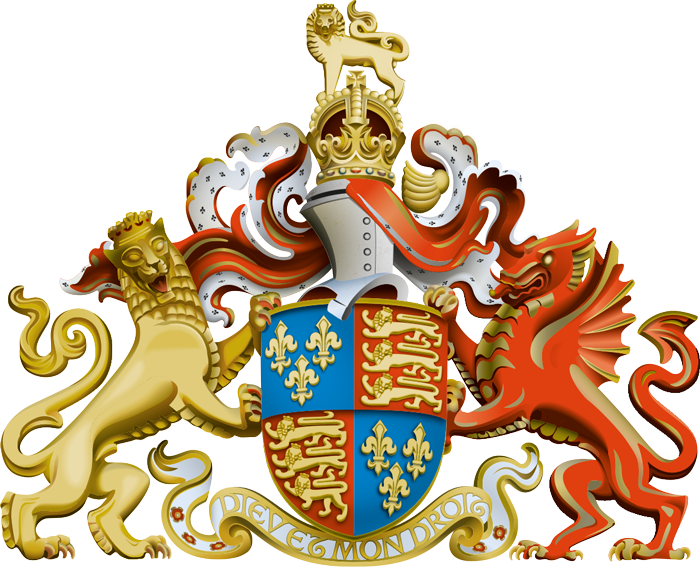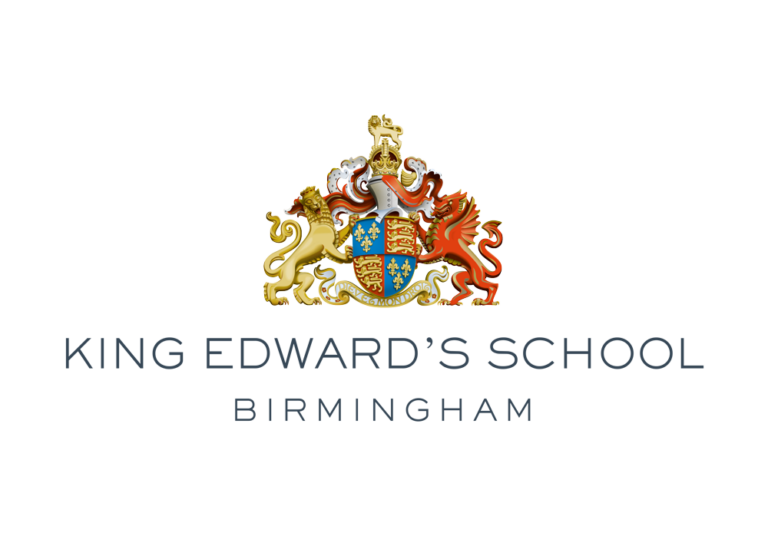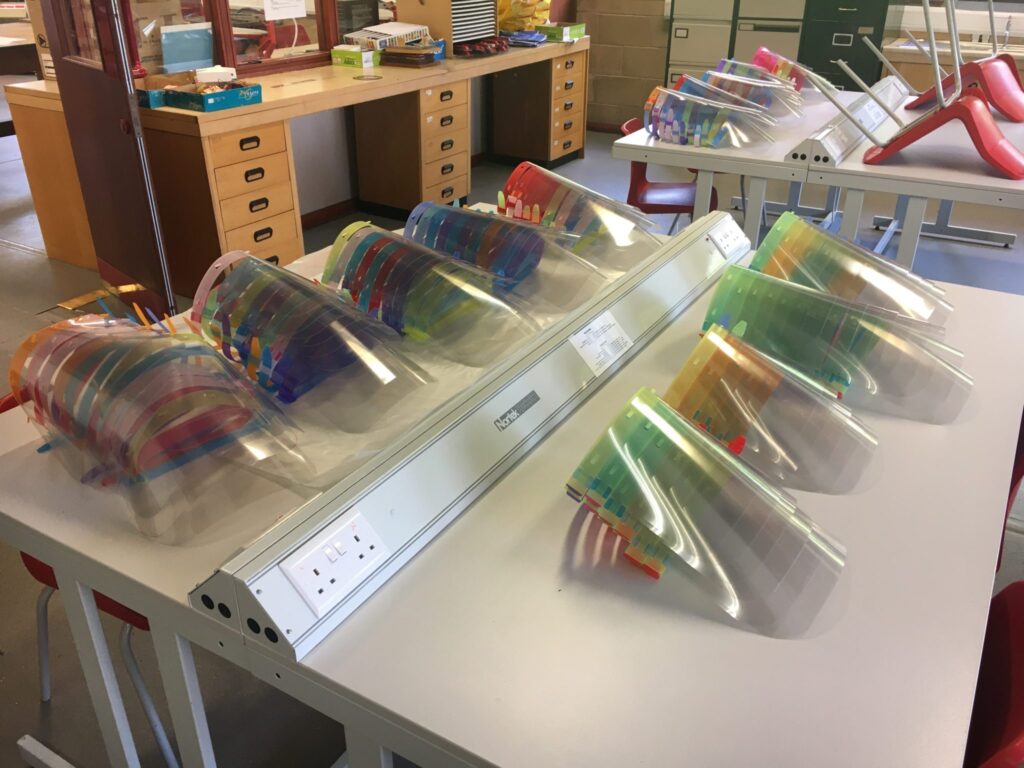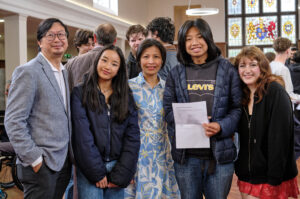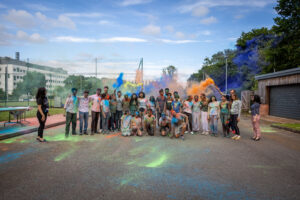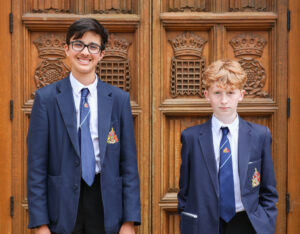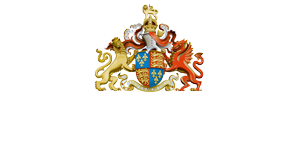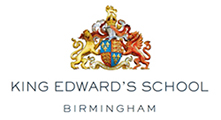They say that the best and worst of humanity manifests itself in the darkest of nights. We have seen the scuffles in the supermarkets over the last toilet roll, the behaviour of a selfish few who refuse to follow lockdown protocols and the profiteers who exploit the fear and desperation of people – yet – we have seen the resilience of citizens in their homes, proudly refusing to be beaten by the pandemic, the sacrifice of volunteers, devotedly supporting the battle against the virus, and the heroism of our frontline workers who lay down their lives, and bear the responsibility for the running of our country. I think we can agree that the good of humanity has shone most brightly.
Talking of heroes, we need not to look any further than our very own D&T department. The D&T teachers may be the nicest in the school, but give them a pandemic, and they’ll come ready armed with an arsenal of laser cutters, strips of PVC, and some very fashionable face visors. In fact, over 500 of these face visors have already been made for the Queen Elizabeth Hospital, with many, many more to come. I was privileged enough to interview Mr Balkham and Mr Howard about their important work.
Me: First of all, how are your families coping?
Mr Howard: We all got quite ill. I couldn’t taste or smell. The boys just got really bad colds. Tricia [Mr Howard’s wife] got really, really poorly, she just about missed going into hospital. She was really ill for about 10 days, had an absolutely awful time. We did call the paramedics, and knowing how bad it is, and because of her experience dealing with patients day-in, day-out, she’s losing one or two patients a day in the care home. They’ve had a terrible time. But the boys have been working at the surgery, working at reception and summarising notes. It’s been really good for them actually; they’ve had a proper structure to their day. So, it’s been in ways, a positive experience.
Mr Balkham: Fortunately, we haven’t been affected yet. I’ve got three sons, and they’re just receiving work from school, and that’s keeping them fairly busy, we’re getting outside every day, either for a walk or a kickaround with a football. I’ve been quite routinely listening at 5 o’clock to the Daily Briefing – from a statistics point of view, it’s quite interesting to see how things are extrapolated from these graphs which you see every day.
Me: How does it feel to be part of the global fight against the virus?
Mr Balkham: I think everybody is playing their part in the fight against the virus, whether it be observing the social distancing rules, raising money for the NHS – like Mr Browning and Mr Fair – or making up scrub bags – like Dr Kulkarni – we are all doing what little we can. NHS frontline workers deserve all the support that they are getting and I know everything that is being done, no matter how small, adds up to a major effort. What we’ve done so far is relatively small scale compared to the national effort. If you combine the total effort of all D&T departments across the country, I think you’re talking about well over 100,000 pieces [of equipment].
Me: What inspired you to do this?
Mr Balkham: An early request came in from Naresh Aggarwal [OE 2003] who works as a GP and also from Vaishali Senthil [KEHS OE year 2015] whose parents are doctors, then listening to Radio 5 Live (as I often do), Dr Zoe, who contributes a lot to the Covid-19 discussions, gave Dulwich College in London a shout out for manufacturing face visors using their 3D printer, then a company called Kitronik released open source files for a version that could be quickly manufactured using a laser cutter – this was endorsed by the Design and Technology Association and I saw many stories of grateful NHS workers receiving visors made in this way as the community of Design and Technology departments started to mobilise. And of course, the lack of PPE became a major news story so it felt wrong not to investigate what we could do and get on to it – we couldn’t just sit around and do nothing. With the support of the school we soon fired up our laser cutters to make a start
Me: How is the manufacturing process – are there any challenges?
Mr Balkham: The manufacturing is quite simple – the visors consist of three laser parts for the headband made from polypropylene and a visor made from PVC. The parts are easily assembled by hand. It most probably takes less than five minutes to make one from start to finish. Sourcing the materials has been one challenge as the demand for them has suddenly increased.
Me: Could it be made at home and would you encourage people at home to do so? If not, how would you recommend people to help the fight against the virus?
Mr Balkham: There are versions that can be manufactured using 3-D printers at home and I have seen stories of families doing exactly that – the process is a bit slower but the end result looks great. What would I recommend people do? Listen to the advice of the Government first of all – keep an eye out for those closest to them. Stay Home, Support the NHS, Save Lives.
Me: As the PPE crisis worsens, do you feel that you will be under more pressure to deliver more equipment to the NHS?
Mr Balkham: Well firstly, let us hope that the PPE crisis improves! Will we be under more pressure? Who knows? But we will continue to do what we can as the situation develops. I would like to extend my thanks to Colin Howard, Kevin Hartland, Vaishali Senthil [KEHS OE], James and Josh Howard and James Cleasby [KES OE] for their help in manufacturing and distribution.
I would like to say on behalf of the school and our communities a huge thank you to the D&T department for the invaluable work you are doing for the NHS.




